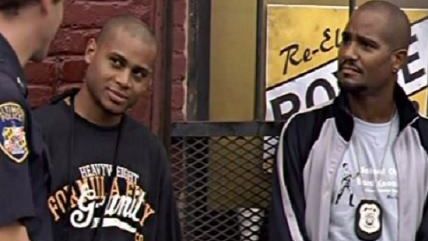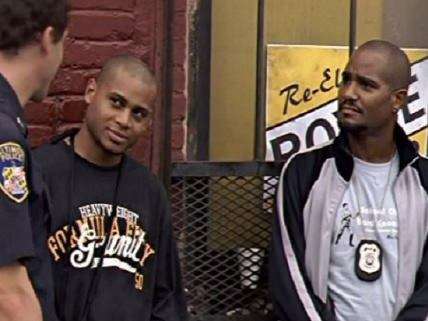The Farce of Police Accountability in Big Cities: Baltimore Edition
A three-hour long city council committee hearing on police procedures demonstrates how elusive real police accountability is.


City Paper of Baltimore files a nausea-inducing report on a recent three-plus hour long city council Public Safety committee hearing on police procedures, which begins:
There are two, maybe three, important things to take from the three-plus-hour hearing on police procedures the City Council's Public Safety Committee held last Tuesday.
1. Police stop citizens on the street thousands of times a year, but they do not have any usable data about those stops.
2. Police are skeptical of anyone who complains about them. But they really, really want to earn your trust, so they check every complaint.
There might be a third item: These hearings are useful for seeing the state of affairs, and they also reveal a troubling dichotomy between the way the council treats police witnesses and citizens.
City Paper goes on to describe how after two hours of police testimony one councilman, Warren Branch of the 13th district, interrupted the second non-police witness of the night, a 19-year-old resident worried about police brutality, after only a few minutes to lecture him on how the city council has been putting "pressure" on the police department for years, how his committee has been working with police to improve community relations, and even telling the resident he shouldn't come to the hearing "casting stones." The 19-year-old, who asked Branch and two other councilmembers to provide physical copies of difficult-to-see slides being presented at the hearing before being interrupted, eventually left.
It's not a unique sight at such council hearings. I attended more than a few in Newark at my time, and I find council members tended to be dismissive of the residents who showed up to council meetings, perceiving residents' questions and comments as attacks on the council members' own leadership or character. It sounds like that's what happened in Baltimore last Tuesday with Branch. As City Paper reported, much of the hearing involved police brass regurgitating tired talking points and avoiding specific answers to specific questions. The entire exercise was a microcosm of what broader "police accountability" loks like. For example, City Paper notes:
The department has put its "Use of Force Investigations" online. But the tiny maps and confusing matrix appear designed to thwart clarity and accountability. The names of the officers supposedly under investigation are not published here, for example. And of the 34 cases (all of 2014) on the table, only five feature downloadable PDF reports of the findings.
Those reports likewise do not identify the officers or any suspects or victims. None of them found any wrongdoing by any police officers, although one case was not fully investigated because the York, Pennsylvania police have charged the officer—John Torres—with attempted murder for allegedly shooting a man whose wife Torres was in a relationship with. The Baltimore police investigation ended when Torres resigned from the department.
Branch, like every other member of the Public Safety committee and the entire Baltimore city council, is democratically elected. Similarly, the police commissioner, Anthony Batts, is appointed by a democratically-elected mayor. He and his deputies tell Branch and the other democratically-elected councilmembers at the committee hearing that everything is going fine, that the police department doesn't train cops to do the awful things they're accused of doing. Like the police, council members dismiss most complaints from residents.
In a one-party city like Baltimore, few of the elected officials face any serious challenge at the ballot so nothing changes. Until a sufficiently sympathetic unarmed person, preferably a black one, gets shot by a cop, preferably a white one, the issue of police brutality remains unaddressed by Baltimore's political class and the self-proclaimed community leaders that provide the political class its power base. And once in a while the ignored but likely systemic bad behavior of cops leads to a lawsuit. And even when such lawsuits are won or settled, neither the city's political leaders nor the cops pay for it, just the taxpayers.


Show Comments (11)